|
THE FARNDALE AVENUE HOUSING ESTATE TOWNSWOMEN'S GUILD DRAMATIC SOCIETY PRODUCTION OF A MURDER MYSTERY (MURDER AT CHECKMATE MANOR) by David McGillivray & Walter Zerlin Jr. ACTS (Aston and Cote Thespian Society) Aston Village Hall, Aston, Nr. Bampton, Oxon, OX18 2DU 8-10 March 2018 Murder at Checkmate Manor is a murder mystery evening put on by the fictitious Farndale Avenue Housing Estate Townswomen's Guild Dramatic Society. They're not very good. They miss their cues, they forget their lines, parts of the scenery fall apart, and they come out of character and talk to each other while on stage. Playing the fictitious am-dram society are the actors and actresses of the very real Aston and Cote Thespian Society (ACTS). They have a challenging time doing this, for sure. Messing up in rehearsal is something that all of us who tread the boards do with remarkable regularity when the director isn't asking us to, but deliberately playing something 'wrong', and making it look like a mistake, is surprisingly difficult. Add to this mix some really complicated business requiring split-second timing and an awareness of what other performers are doing and you have the potential for the 'mistake' being messed up and the joke being lost. Bit of a minefield then. I'm pleased to say that ACTS avoided stepping on any metaphorical explosives and turned in an ensemble performance that had pace (in spite of the deliberate awkward pauses) and a sense of fun. The audience, a full village hall, certainly enjoyed it. Playing a character who is playing another character requires a certain level of mental gymnastics from the actor. During my visit to their rehearsal last week, director Valerie Crowson told me that she had told the cast to play the murder mystery characters as members of the Farndale Avenue drama group, and not as members of ACTS. From what I saw last night, she succeeded in achieving that subtle difference from her cast. One of my favourite moments came in the second act when members of the cast had to move chairs around between scenes on stage. Each actor clearly had a different idea of where certain chairs were supposed to go, and so we had an extended (two minutes?), and very funny, sequence of seven performers taking off, moving or bringing back the chairs in question. With never a word exchanged. Beautifully choreographed and flawlessly executed by the cast. The laughter built as the layers of absurdity were piled on to the competitive chair shifting. Every actor's nightmare was cleverly presented in a scene between Daphne Bishop (Vicky Fuller) and Inspector O'Reilly (Mark Goss) in which their Farndale Avenue characters got stuck in a script loop, endlessly repeating the same short sequence of lines over and over, unable to remember what comes next. The cherry on the icing was when they swapped lines. Mark played 'Desmond Jones', a last-minute replacement, with an appropriate 'fish out of water' characterisation, non-plussed with the whole on-stage experience, which hit the spot. The show opened with 'Mrs Reece', the chairwoman of the Farndale Avenue society, introducing the play and making various 'housekeeping' announcements to the audience, before going on to play several roles in the murder mystery. Gill Long played this straight and seemed to inhabit the character of Mrs Reece with the right mix of pomposity and lack of self-awareness. The only moment the mask slipped, momentarily, was when the faintest of smiles flickered across Gill's face after delivering a line about moving towards the climax we've all been waiting for. This after her perfectly po-faced talk about the butler's tool. Jan West, who played 'Audrey' and Vicky Fuller, who played 'Thelma' pulled off some nice double acts as Lady Bishop and her daughter Daphne, and later as spinster aunt sisters, Violet and Rose Bishop, dressed in grotesque costumes. Overall, both Jan and Vicky got that 'worst possible am-dram' feel to their characters, with Jan's switching from being Lady Bishop to 'Audrey' particularly well done. Vicky gave us Daphne à la Joan Hunter-Dunn as played by clueless thesp Thelma. Netty Lings' Farndale Avenue character 'Felicity' as Pawn the butler (this was Checkmate Manor, after all) had the only true character arc in the play (not that we were expecting character development in a piece of this genre). She went from the only one on stage keeping things together in the first act to bored and distracted in the second. The latter mood swing was the basis of one of my favourite scenes in the show. Pawn the butler stood with a silver tray and discovered that she could reflect the stage lights on to the audience. Despite being told not to repeatedly by 'Gordon Pugh' playing Mr Goodbody the solicitor (Steve Neal), the butler persisted in acting like a naughty schoolboy. A great running gag. Another highlight was Laura Bradley's 'Gloria' as Regine the French maid, who was part of possibly the most ridiculous murder of the whole play (and there was stiff competition) – setting herself up for being pushed out of the window and then falling in slow motion, cartoon-like. One scene in which, uncharacteristically, things weren't quite as convincing as they could have been came early on. Some of the Farndale Avenue actors are supposed to start laughing on stage ('corpsing' in actorspeak). This didn't really work. The laughter lacked the spontaneity of the real thing and seemed stiff and unnatural. When an actor genuinely laughs on stage when he's not meant to, the audience quickly 'catch' the laugh and that didn't happen here.
Checkmate Manor is a comedy with elements of farce. The key to success is two-fold: making believable the idea that a character is playing another character...badly, and getting the timing of the physical comedy right. Valerie Crowson's direction achieved both aims successfully. Compliments also to those who built the set and props (much of which had to be collapsible) and to the backstage crew who were, it seems, kept as busy as the cast during the show. Photos courtesy of Valerie Crowson
0 Comments
Leave a Reply. |
About the Author
Mike Lord has been involved with amateur theatre for over twenty years, mainly as an actor but also, more recently, as a director. Archives
July 2019
Contact me
Please use the Contact Form for anything apart from comments on blog posts. |
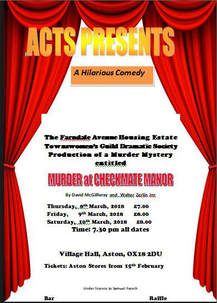
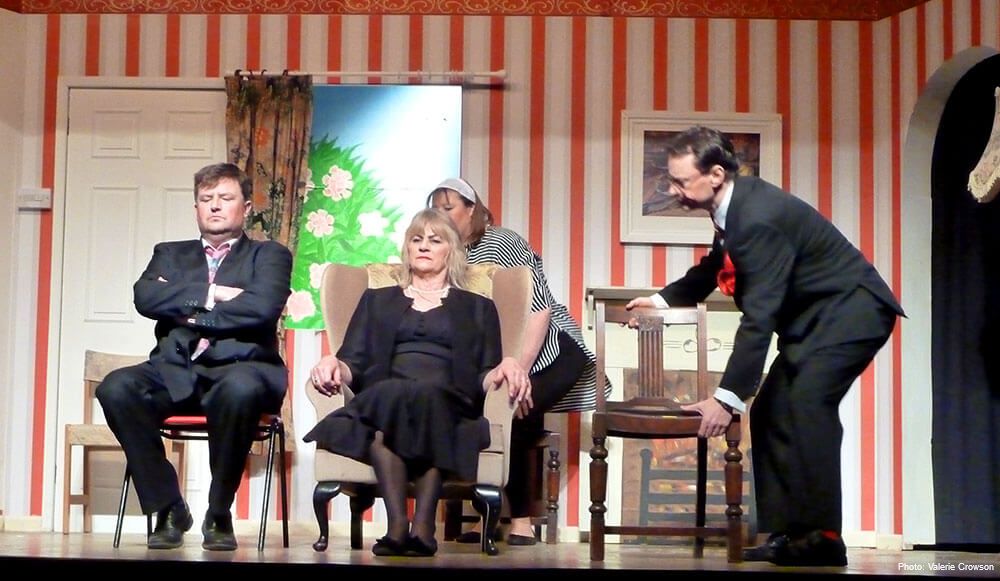
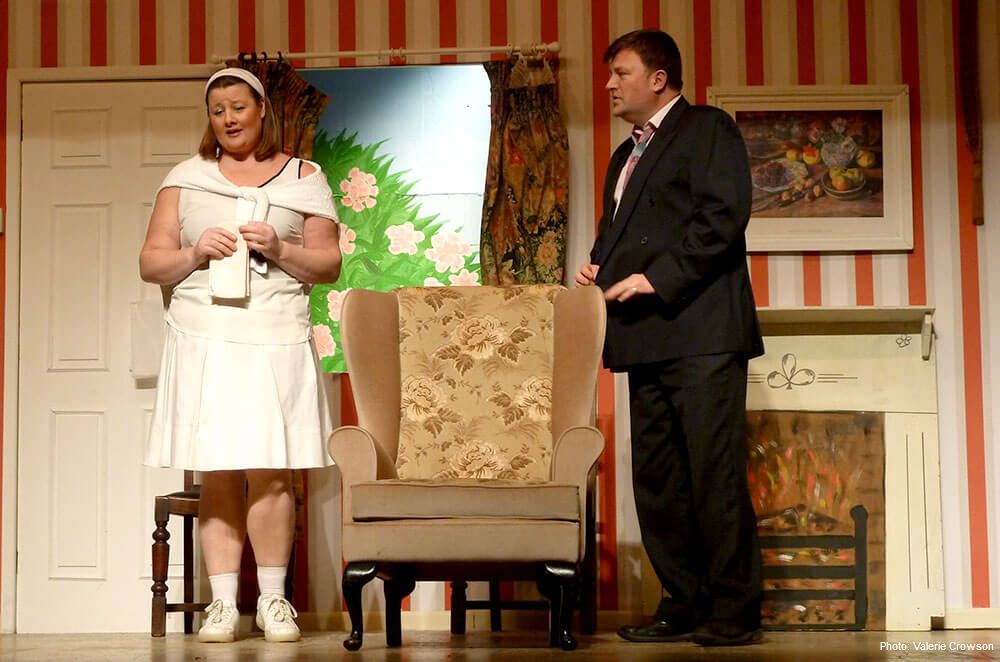
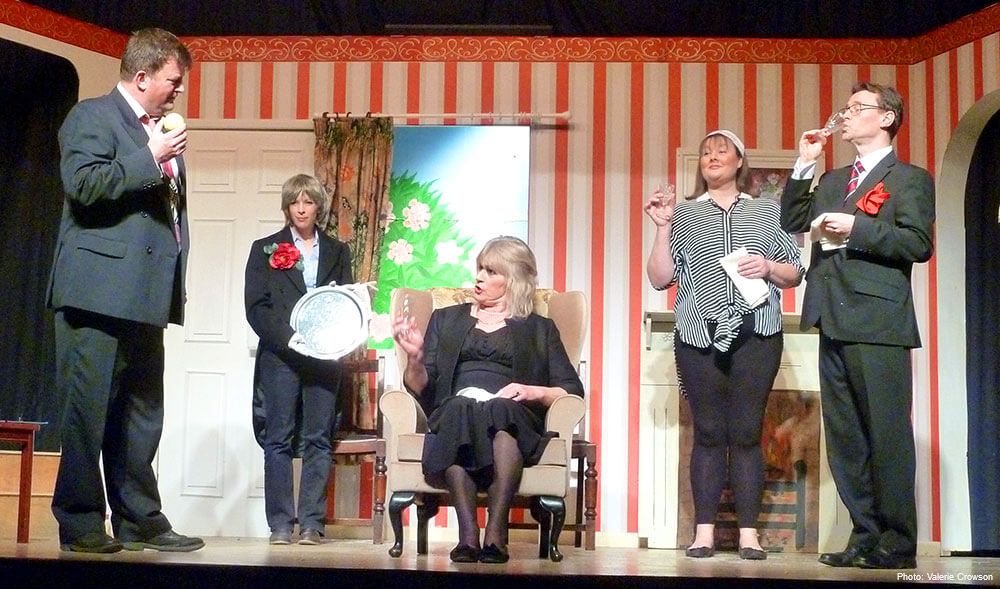
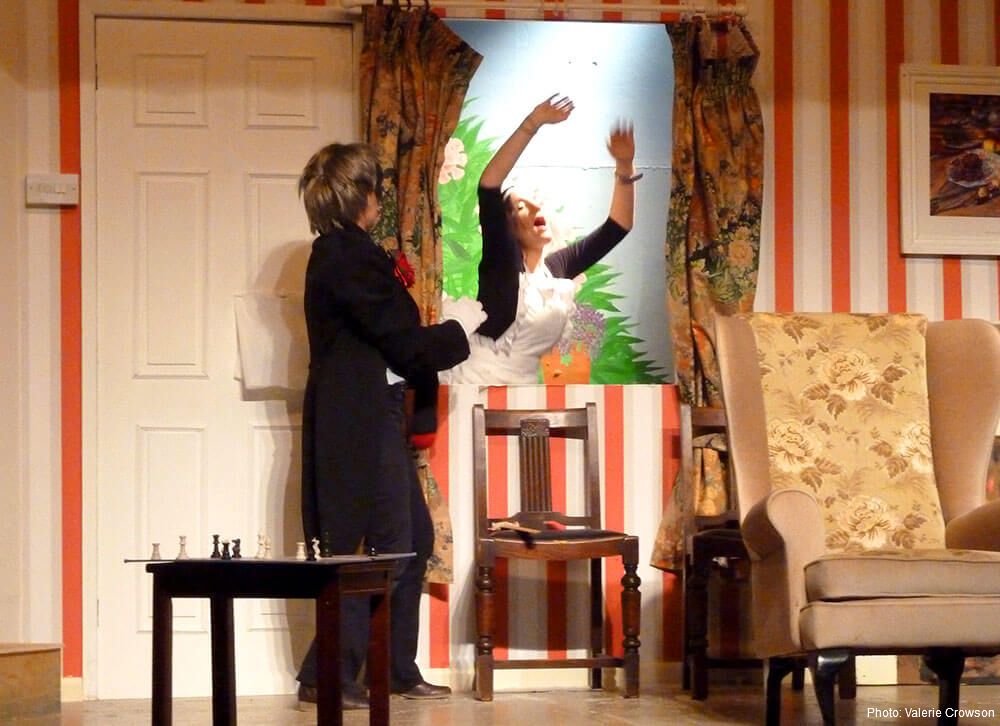
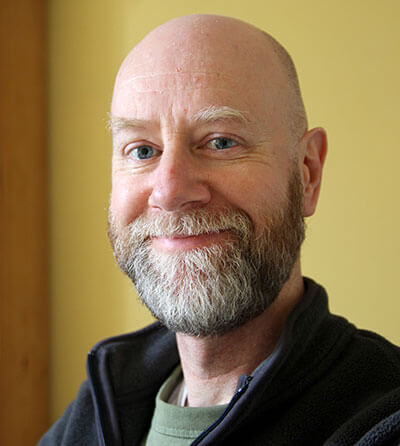
 RSS Feed
RSS Feed
